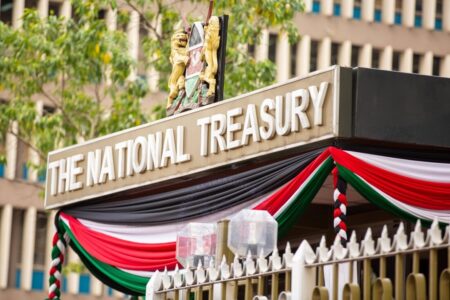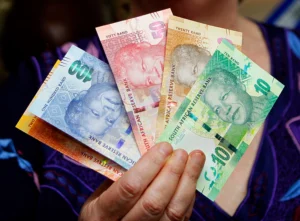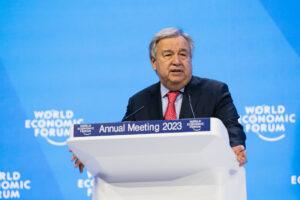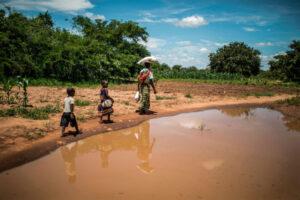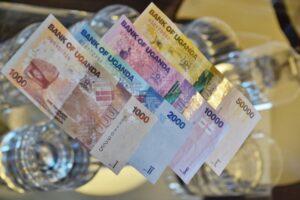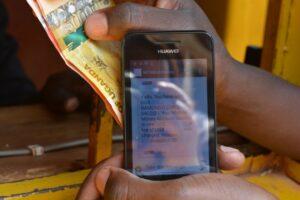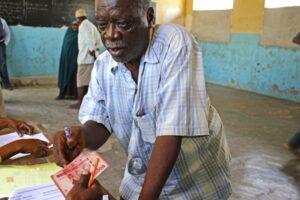- Global investment trends at AIM Congress 2024: a spotlight on the keynote speakers
- South Africa’s deepening investment ties in South Sudan oil industry
- Agribusiness could drive Africa’s economic prosperity
- Dawood Al Shezawi: Why AIM Congress 2024 is the epicenter of global economic and cultural dialogues
- d.light’s 600,000 cookstoves project verified as top source of quality carbon credits
- Artificial intelligence (AI) could create a turning point for financial inclusion in Africa
- AIM Congress 2024: Catalysing global investments with awards
- Kenya’s economic resurgence in 2024
Premium
- Kenya’s forex reserves dipped to $6.2 billion on May 19, an eight-year low, before a slight improvement to $6.4 billion on May 26.
- At $6.4 billion, Kenya’s reserves are just 3.60 months of import cover, which is below the Central Bank of Kenya’s desired target.
- What’s more, the reserves are below the East Africa Community preferred threshold of 4.5 months of import cover, hence exposing the country to high volatilities in the global market.
A dip in export earnings, coupled with reducing diaspora inflows at a time of huge debt repayments have left Kenya grappling with low forex reserves, raising concerns on the health of East Africa’s economic powerhouse.
The low forex reserves are further compounding the dollar shortage problem that has been gripping importers for months. Importers, mainly in the manufacturing and the energy sectors, have been struggling to secure the greenback to replenish their suppliers.
Kenya’s forex reserves
…According to SWIFT, African regions with strong integration saw increased use of local currencies and decreased use of hard currencies such as the US dollar. For instance, the use of the West African franc by the eight countries in the West African Economic and Monetary Union has overtaken the South African rand and the British West African pound.
This implies that boosting the use of regional currencies will shield the African trade market from adverse global conditions associated with the performance of US dollars. However, further regional coordination remains necessary to build a continental payment system that encourages the use of local correspondent banks and local currencies. These moves can help in managing currency depreciation to boost African trade finance. …
Into a menacing economic quick sand African economies have been sinking, taking hefty blows from numerous unprecedented challenges birthed by the overarching global crisis. The status quo has instigated a clarion call to cushion them from dipping further beneath the horizon, by casting different viable iron rods, as the ‘one shoe fits all’ approach is not feasible due the dynamic nature of African economies. Inarguably, Africa has not been left unscathed amid the ongoing global ‘polycrisis’, as described in the 2023 World Economic Forum’s (WEF) Global Risks Report, to mean a cluster of related global risks with compounding effects, such that the overall impact exceeds the sum of each part.
In light of this, on day three of the WEF in Davos, Switzerland, UN Secretary General António Guterres in his speech, stated that at present the world faces “a category five” storm of challenges that need urgent action. These include …
- The national debt is still a lingering thorn in the economy.
- Central banks point out monetary policy keeps money supply afloat.
- Current GDP is higher than last year’s 4.0 per cent in the same quarter.
Tanzania’s economy is progressing strongly despite global financial shocks propelled by the pandemic.
According to the economic bulletin produced by the central Bank of Tanzania (BoT), the economy grew by 4.3 per cent in the quarter ending September 2021 , which is higher than 4.0 per cent in the corresponding quarter in 2020 – mainly driven by agriculture, transport and storage, trade and repair, manufacturing, mining and quarrying, and construction.
On a comparative basis, Tanzania has stood relatively high compared to the African Development Bank’s optimistic forecast for real GDP growth of 4.1 per cent, contributed by improved performance of the tourism sector and the reopening of trade corridors.
READ: The 1.7M dollar buzz from …
However, the DW report argued that just 18 per cent of GCF financing went to projects in the world’s poorest countries, while 65 per cent went to projects in middle-income countries like Mexico or India.
GCF is an essential partner towards Africa’s climate action. It is one of the most potent multilateral financing mechanisms available for the continent in supporting genuine-time climate action efforts.
Despite the underlying challenges within climate finance the region faces, it ought to be ready to harness GCF’s potential and become resilient as climate change impacts do not wait. …
- Africa’s technology adoption is a crucial factor for the smooth adoption of blockchain.
- Africa has some of the most highly ranked global crypto adoption indexes.
- Most African countries have not allowed crypto to be included in economic transactions.
As much as Africa struggles with technological challenges, including the digital divide, still, the second-most populous continent has stood high when it comes to cryptocurrency adoption, bringing the crypto market to $105.6 billion by the year ending June 2021.
In countries such as Tanzania, Kenya, South Africa, and Nigeria (ranked in the top 20 Global Crypto Adoption Index), fintech has taken a serious step towards serving millions of unbanked citizens. These nations have taken another step—they have been a significant catalyst in promoting cryptocurrency’s growth, thanks to the vast expansion of smartphone use which ultimately leads to accessing blockchain networks.
According to a September 2021 publication by The African Report, crypto adoption …
- African economy has sustained significant impacts due to the pandemic
- Several sectors such as tourism and trade have been impacted significantly
- Despite the virus, Africa has demonstrated important issues towards handling pandemics
One of the most vibrant economies in the world, sub-Saharan Africa is slated to bounce back from the shocks of COVID-19 which left a number of economies shaken to the core and hundreds of lives lost.
Despite the pandemic limiting several economic functions such as international travel—which marred tourism operations in East Africa, the region is expected to score growth of 3.3 per cent in 2021, according to a recent report by the World Bank.
The October edition of Africa’s Pulse report explicitly noted that the resurgence of the economy is promoted by elevated commodity prices, a relaxation of stringent pandemic measures and recovery in global trade.
Kenya, Tanzania, Rwanda and Uganda, are now working towards building …
- Mobile money is growing fast in East Africa
- Despite of the pandemic, still mobile money regulators enabled its performance
- Financial technologies are changing the way unbanked populations access finance services
Mobile money is still king in Africa and will be so for long. With more than 548 million (up 12 per cent) registered accounts attached to a 27.4 billion transaction volume worth $490 billion, Africa stands to draw billions from mobile money and transform its economies significantly (GSMA 2021).
Thanks to financial technology (fintech) which has accelerated financial inclusion in sub-Saharan Africa, now more than ever, the unbanked population in rural areas of Africa can access financial services seamlessly, even during the coronavirus pandemic’s harsh times.
Today fintech technologies are challenging traditional financial services, particularly banks in Africa. This has forced banks to adapt to the new game brought by fintech aggregators, including fusing their services to mobile services and …
- Tanzania has went through significant changes in its pension schemes over the past years
- Pension funds have becomes a useful tool in the wake of the pandemic
- Nigeria,Kenya, Namibia, Bostwana and Mauritius demonstrate serious activity in pension fund growth
Pension funds are now an instrumental tool in the economy across Africa that play a major role in building long-term finance and capital markets, through mobilization and allocation of stable and long-term savings to support investment, according to Making Finance Work for Africa.
In a nutshell, according to Corporate Finance Institute, the pension fund is an endowment that accumulates capital to be paid out as a pension for employees when they retire at the end of their careers.
In countries such as Tanzania, where pension funds are part of government lending, contributing at least 11.4 per cent of total investment by March 31, 2019, there is a glimpse of hope that …





